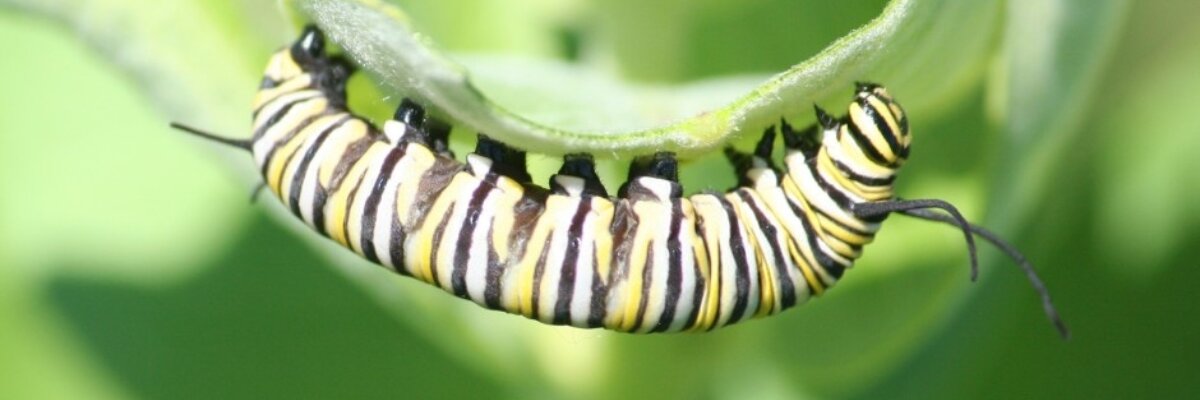
It's late in the migration season! Will monarch caterpillars and adults survive freezing temperatures? Should I ship monarchs south (or take them with me on vacation to release) in order to help them?
In order for an adult monarch to fly, temperatures need to be above 55 degrees Fahrenheit. Monarch eggs and caterpillars can survive some exposure to cold, but these cooler temperatures slow their development time, and prolonged exposure may cause sub-lethal effects (e.g., monarchs may take longer to develop, leaving them more vulnerable to disease and predation).
Some caterpillars develop late into the season as temperatures decrease and milkweed ages. Not all of them will survive. In many cases, freezing temperatures may eliminate the milkweed plants (caterpillar food source) and blooming nectar plants (adult food source), which are essential for monarchs to eat. Late-season adults have a lower chance of surviving the long-distance migration due to cold temperatures and limited nectar to fuel their journey.
These cycles and stressors are part of the natural cycle of life. Monarchs are part of the larger ecosystem and are an important food source for many other species.
Because monarchs rely on a combination of environmental cues to sustain their migration, we discourage interference with natural conditions. We do not recommend moving monarchs (USDA permits are required to ship across state lines). Instead, we highly recommend planting monarch habitat and participating in community science as two primary ways to help protect this valuable species. Please check out our educational handouts for more information on many dimensions of monarch and pollinator conservation.
